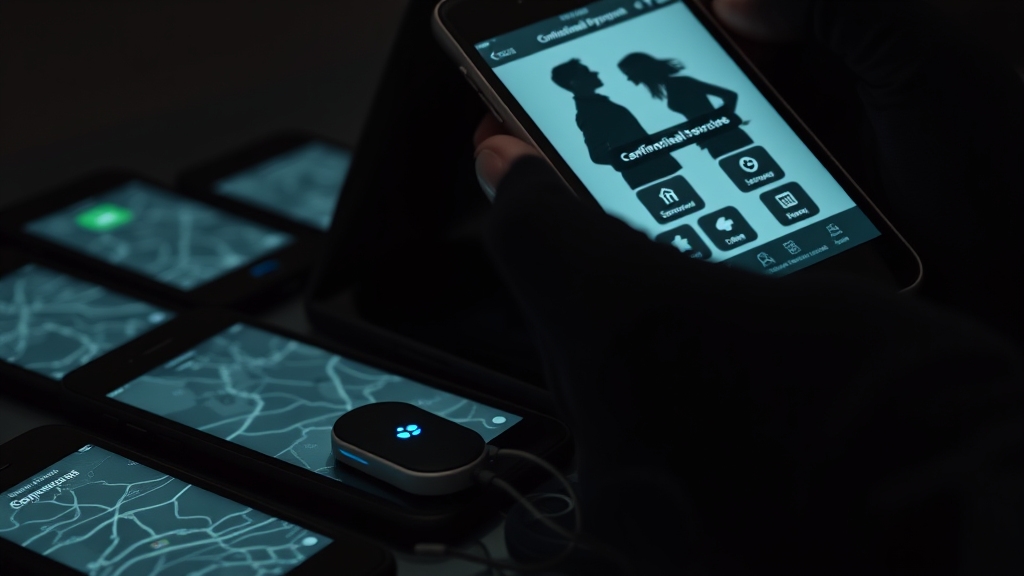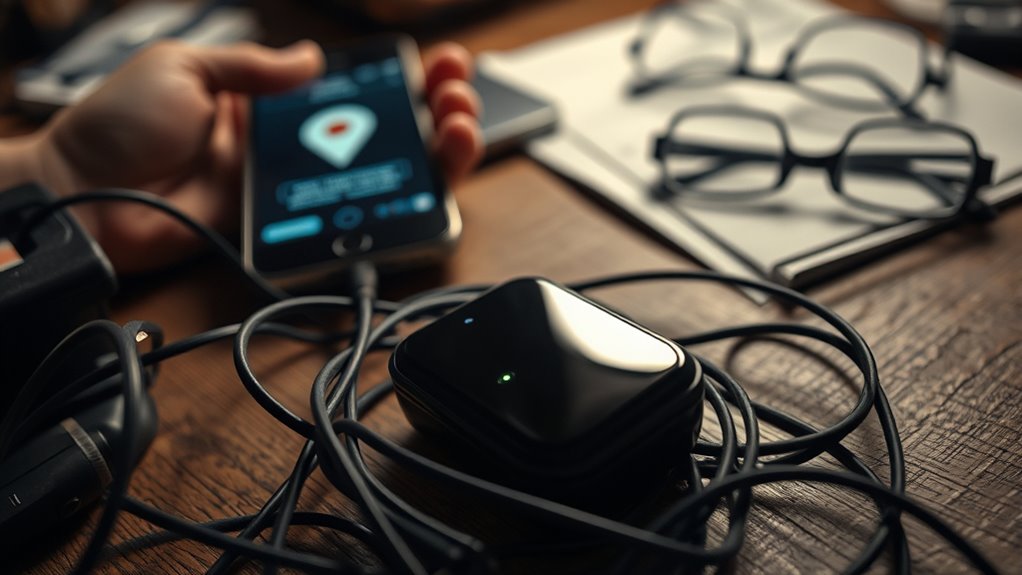Using GPS trackers and spyware to monitor your spouse raises serious ethical concerns and can damage trust and privacy. Before taking such steps, consider how secret monitoring might betray your partner’s boundaries and create suspicion. Laws vary, and installing surveillance without consent can lead to legal issues. Respecting personal space and fostering open communication often provide healthier solutions. If you want to understand the moral implications and better approaches, there’s more to explore.
Key Takeaways
- Using GPS trackers or spyware without mutual consent can breach privacy, erode trust, and damage relationship integrity.
- Monitoring a spouse secretly may violate legal boundaries, leading to potential criminal or civil consequences.
- Ethical surveillance respects personal boundaries, emphasizing transparency and open communication over covert monitoring.
- Respecting privacy rights and understanding legal restrictions are crucial to responsible and lawful electronic surveillance.
- Alternatives like counseling and honest dialogue are healthier approaches than covert spying in marriage issues.

GPS trackers and spyware have become increasingly common tools for monitoring individuals, but their use raises serious privacy concerns. When you consider installing such devices in a marriage, it’s essential to understand the potential impact on trust and personal boundaries. While tracking can provide reassurance or help address safety issues, it also risks crossing ethical lines. Privacy concerns are at the forefront because these tools can reveal intimate details about your partner’s whereabouts, routines, and associations without their knowledge. This intrusion can lead to feelings of betrayal and a breakdown in communication, especially if used without mutual consent.
Additionally, using these tools can sometimes trigger emotional reactions rooted in deeper relationship issues, making it even more important to evaluate your motives carefully. Legal implications also come into play when deploying GPS trackers or spyware in a marital relationship. Laws vary by jurisdiction, but generally, installing tracking devices on someone’s property without their permission may be considered illegal or an invasion of privacy. Even if you’re married, there are limits to what you can do without consent, particularly if the monitoring involves electronic surveillance that captures personal conversations or data. Failing to understand these legal boundaries could lead to criminal charges, civil lawsuits, or the invalidation of evidence in divorce proceedings. It’s essential to weigh the legal risks alongside your reasons for monitoring, as misuse can have serious consequences that outweigh any perceived benefits.
You might be tempted to justify tracking your spouse out of concern or suspicion, but it’s crucial to recognize that such actions often erode trust rather than build it. When you secretly monitor your partner, you risk creating a cycle of suspicion and paranoia that damages your relationship long-term. Instead of relying on covert surveillance, consider open communication or counseling to address underlying issues. If you do choose to use GPS trackers or spyware, make sure you’re fully aware of the legal landscape and the ethical implications involved. Recognizing the importance of relationship boundaries can help guide healthier decision-making and protect both partners’ rights. Being aware of privacy rights and respecting personal space are essential aspects of maintaining a healthy and respectful marriage.
Furthermore, understanding the legal landscape surrounding surveillance tools can help prevent unintended legal consequences and ensure that your actions remain within lawful boundaries.
Frequently Asked Questions
Can GPS Trackers Be Used Without the Target’s Knowledge Legally?
You might wonder if you can use GPS trackers without the target’s knowledge legally. Generally, this raises consent issues and legal boundaries, as many jurisdictions require all parties’ consent or have restrictions on covert monitoring. Without proper consent, you risk violating privacy laws and facing legal consequences. It’s important to understand local laws to avoid infringing on someone’s rights, even if your intentions seem justified.
What Are the Psychological Effects of Spyware on Relationships?
You might notice that spyware use can lead to trust deterioration in your relationship, causing feelings of betrayal and insecurity. It often fosters emotional manipulation, making your partner feel guilty or paranoid. This psychological impact can create a cycle of suspicion and resentment, damaging intimacy. When trust is broken, repairing the relationship becomes harder, and emotional wounds may persist long after the spyware’s effects have faded.
Are There Any Privacy Laws Regulating Electronic Surveillance in Marriage?
Your question about privacy laws regulating electronic surveillance in marriage is essential. While marital privacy is often viewed as a fundamental right, surveillance legality varies by jurisdiction. Some laws strictly protect against unwarranted spying, but others are more lenient, allowing covert monitoring if there’s suspicion of infidelity or danger. You must understand local regulations to avoid legal pitfalls and respect personal boundaries, even in the digital age where privacy feels like a fragile illusion.
How Effective Are GPS Trackers and Spyware in Preventing Infidelity?
You might think GPS trackers and spyware can prevent infidelity, but their effectiveness is limited. They may provide trustworthiness assessments, revealing suspicious behavior, yet often cause emotional impact and damage your relationship. Instead of relying solely on electronic surveillance, open communication fosters trust and understanding. Remember, technology can’t replace honesty and emotional connection, which are essential for building a healthy, faithful relationship.
What Are the Alternatives to Electronic Surveillance for Building Trust?
Building trust is like tending a garden—you nurture it with care and patience. Instead of electronic surveillance, focus on mutual communication; openly share your feelings and listen to your partner. Relationship counseling can act as a guiding compass, helping you navigate challenges together. These alternatives strengthen your bond, foster honesty, and create a foundation of trust without invading privacy. Trust grows when both of you work together and communicate openly.
Conclusion
As you navigate the delicate dance of trust and transparency, remember that the line between safeguarding and overreach can blur like a foggy morning. While technology offers peace of mind, it also casts shadows on personal space. Choosing to use these tools wisely guarantees you don’t drown in a sea of suspicion. Ultimately, fostering open hearts allows you to walk together with clarity, rather than becoming lost in the mist of surveillance.









